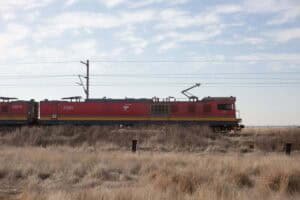Eskom maintains that tariffs do not reflect the true cost of supply.

A settlement reached by Eskom and energy regulator Nersa, related to a crucial element in the determination of the power supplier’s average tariffs, may cost consumers dearly when the regulator finalises what consumers will be paying for electricity in the next two financial years.
The tariff determination is on the agenda of a Nersa electricity sub-committee meeting on Tuesday, and it is expected to make a recommendation to the regulator about the 32% increase Eskom wants in April next year and a further 10% a year later.
This is the umpteenth time Nersa has had to eat humble pie in court about the lawfulness of its methodologies or the way it applies them – and once again, it was told to rectify the mess it has caused.
Less than three weeks ago, on October 20, the Pretoria High Court declared Nersa’s methodology for determining municipal electricity tariffs unlawful and invalid and sent the regulator back to the drawing board to rectify it within 12 months.
The latest settlement was made an order of the same court only a few days later, on October 24, but was not immediately made public.
It has already cost Eskom more than R20 billion in lower revenue in the current year, but the company agreed not to try to recover that through retrospective regulatory clearing account (RCA) claims or any other means.
In April this year tariffs increased by an average of 9.61%. This would have been 15.61%, but for Nersa’s mistake.
It will however have a material impact on subsequent tariff determinations.
Eskom maintains that its tariffs do not reflect the true cost of supply and has been blaming Nersa’s tariff determinations partly for the financial difficulty it finds itself in, with debt of around R400 billion.
Eskom is only able to service about half of that and Finance Minister Enoch Godongwana announced in his mini-budget last month that government will take over between one and two thirds of the debt. A detailed announcement will be made in his February budget.
ALSO READ: Nersa: Existing price determination will continue for at least two years
The latest matter pertains to the value of Eskom’s regulatory asset base (RAB), which forms the basis of the calculation of the amount Eskom is allowed to recover from consumers through electricity tariffs for depreciation and return on assets.
Determining tariffs
Eskom’s tariffs are strictly regulated, and the regulator derives them by first determining the revenue the power utility is entitled to for each of several different elements: including primary energy, operating cost, depreciation and return on assets. The allowable revenue then forms the basis for calculating the average tariffs.
In determining the tariffs for the current financial year, Eskom submitted a RAB of R1.2 trillion, based on a revaluation by independent international experts.
Nersa however reduced this by more than half to R550 billion, which was even significantly less than the value of R885 billion Nersa based its revenue determination on the previous year.
The regulator attached a negative value to three power stations, including the Koeberg Nuclear Power Station and relatively new Ingula Pumped Storage Scheme, in a step that Eskom described as financially impossible.
There were also several other mistakes.
‘Start afresh’ – court
Nersa has now agreed with the court order that declared its valuation of Eskom’s regulatory assets unlawful and invalid, and which instructs it to start afresh and in compliance with detailed directions by the court.
The new value Nersa determines will then be used in the determination of the tariffs for the following two years, according to the court order.
This means the regulator will have little room to reduce the amount Eskom is targeting for depreciation and return on assets in next year’s tariff increase.
Those two components alone represent more than a third of the increase.

The blow consumers may suffer due to this may however be softened to some extent, because the amount Eskom included for power purchases from independent power producers will be reduced.
That means nine percentage points of the proposed increase may be halved, all because of the delay in government’s emergency power purchase programme, notably the Turkish powership projects.
Energy expert Chris Yelland, managing director of EE Publishers, says he can only shake his head at the way Nersa operates. “They lose in court time and time again.”
Yelland says it makes one wonder about the capacity of the Nersa staff. “The regulator must follow the prescribed methodology; it cannot grab tariffs out of thin air!”
He says the two recent court rulings illustrate that Nersa is not capable of developing proper methodologies and complying with its own methodologies.
At least Nersa agreed to a settlement, says Yelland, rather than “appeal and appeal and appeal” as it has done in previous cases it has lost. “That delays tariff decisions and results in prolonged price uncertainty.”
Tariffs are one issue, supply is another …
After suspending load shedding on Sunday afternoon (6 November), Eskom announced that starting on Monday afternoon, Stage 2 load shedding will be implemented from 16:00 until 05:00 every day until further notice.
The utility said nightly implementation of load shedding is mainly due to the need to preserve emergency generation reserves owing to a high level of breakdowns.
At the time of the announcement Eskom had 4 963MW of generation capacity on planned maintenance, while another 14 107MW of capacity was unavailable due to breakdowns.
According to the EskomSePush app, by Sunday afternoon South Africa had suffered 2 555 hours of load shedding in 2022. That is 106 days.
This article originally appeared on Moneyweb and was republished with permission.
Read the original article here.
Support Local Journalism
Add The Citizen as a Preferred Source on Google and follow us on Google News to see more of our trusted reporting in Google News and Top Stories.






